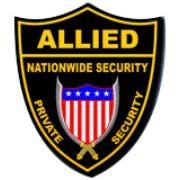The Importance of Private Security in Healthcare
July 12, 2023

With the rapidly growing healthcare landscape, the importance of private security has become increasingly evident. Every healthcare facility, like hospitals, clinics, or medical offices, is entrusted with patients’ well-being and protecting sensitive medical information. As a result, private security in healthcare has emerged as an essential component, ensuring the safety and security of patients, staff, and the overall healthcare environment.
The Changing Face of Healthcare
The healthcare industry is undergoing a noticeable evolution process. Advances in medical technology, the increasing complexity of healthcare operations, and the rise of digital health records have made healthcare facilities potential targets for various security threats. The healthcare sector faces unique challenges, from physical safety concerns to data breaches requiring a robust security infrastructure.
Patient Safety and Well-being
The primary goal of any healthcare institution is to provide exceptional patient care. Patients, often at their most vulnerable, trust healthcare providers with their physical and emotional well-being. However, this trust can only be protected with adequate security measures. Private security personnel are crucial in ensuring patients’ safety within the healthcare facility.
One of the fundamental ways private security guards in hospitals enhance patient safety is by maintaining a visible presence throughout the facility. This presence is a deterrent to potential threats and can de-escalate volatile situations before they escalate. Whether managing visitor access, patrolling hospital premises, or responding to emergencies, security personnel are trained to act swiftly and decisively to protect patients.
Emergency Response
Healthcare facilities must be prepared for various emergencies, from natural disasters to incidents involving violence or terrorism. Private security teams are trained to respond effectively to these crises. Their training often includes first aid, CPR, and specialized knowledge in handling hazardous materials or biohazard incidents.
In a medical emergency or a disaster, security personnel can assist medical staff in evacuating patients, securing critical equipment, and maintaining order in the chaos. Their quick response and coordination with local law enforcement and emergency services can significantly minimize harm during such events.
Protection of Sensitive Information
Healthcare providers store vast amounts of sensitive patient information, including medical records, personal data, and financial information. Protecting this data is a legal requirement and crucial for patient trust and confidentiality. Private security personnel help safeguard this critical information from unauthorized access and data breaches.
In an age where cyberattacks on healthcare systems are on the rise, private security teams often work closely with IT departments to ensure the integrity of digital health records. They implement security protocols, monitor network activity, and respond swiftly to any signs of intrusion. Their vigilance is essential in preventing data breaches that could compromise patient privacy and safety.
Preventing Workplace Violence
Healthcare workers, including doctors, nurses, and support staff, can face a heightened risk of workplace violence. Emotionally charged situations, unpredictable patient behavior, and even disputes among staff members can escalate into violence if not managed properly. Private security personnel are trained to defuse such cases and, if necessary, intervene to protect both staff and patients.
Moreover, security personnel can instill a sense of safety and confidence among healthcare workers, allowing them to focus on providing quality care without constantly worrying about their security, which, in turn, contributes to a more productive and efficient healthcare environment.
Securing Medical Equipment and Pharmaceuticals
Medical equipment and pharmaceuticals are valuable assets within a healthcare facility. Protecting these assets from theft or vandalism is critical to ensuring uninterrupted patient care. Security personnel from a private security company often play a crucial role in monitoring access to storage areas, preventing unauthorized personnel from tampering with equipment or stealing medications.

Additionally, they can assist in inventory management and asset tracking, ensuring that essential medical supplies are readily available when needed. It safeguards patient care and helps control costs by preventing losses due to theft or mismanagement.
To overcome the health institute’s security challenges, private security has become indispensable in maintaining the safety and integrity of healthcare facilities. From ensuring patient safety and emergency response to protecting sensitive information and preventing workplace violence, the role of private security in healthcare cannot be overstated.
Healthcare providers must acknowledge the importance of investing in a comprehensive security infrastructure with a trained and dedicated private security guard company. By doing so, they fulfill their ethical obligation to prioritize patient safety and safeguard their reputation and financial well-being in an increasingly complex healthcare landscape. In the end, private security protects healthcare facilities’ physical and digital assets and upholds the trust and faith of the patients and staff alike.
